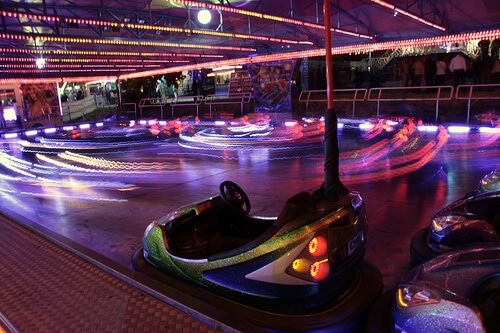On December 31, 2012 the California Supreme Court issued a ruling that could affect thousands of recreational activities taking place in the State of California.
In the case of Nalwa v. Cedar Fair, the plaintiff, who had fractured her wrist on a bumper car ride at an amusement park, sued the park owner for negligence in the operation of the bumper car ride. While the trial court threw her case out on summary judgment, a divided Court of Appeal had reinstated her claim, causing the intervention of the Supreme Court.
The Supreme Court ruled that the injured plaintiff could not sue the park operator for her broken wrist bone on the grounds that the “primary assumption of risk” doctrine precluded such claims. While such a doctrine has long barred claims involving sporting activities (touch football, inner tube riding, baseball pitches, etc.) this bumper car case establishes that the assumption of risk doctrine can be found within all recreational activities, whether or not the activity involves a so-called “sport”.
The bottom line of the case is the Supreme Court told the injured plaintiff that the world is not perfect, that part of the bumper car rides is to get “bumped”, and that one must assume some risk when they engage in a recreational activity. If the duty to be imposed by the injured person would create a basic alteration, or cause abandonment of, the recreational activity, the Supreme Court would bar the claim on the basis of such doctrine.
The Supreme Court noted that active recreation, because it involves physical activity and is not essential to daily life, is particularly vulnerable to the chilling effects of tort liability. Thus, the Supreme Court ruled that recreation, on its face, can involve the application of the assumption of risk doctrine which, if true, would completely bar the claim of an injured person, no matter how serious the harm. Thanks for reading Slice of Appel PI today! We hope you continue to read and share it with others.


Speak Your Mind